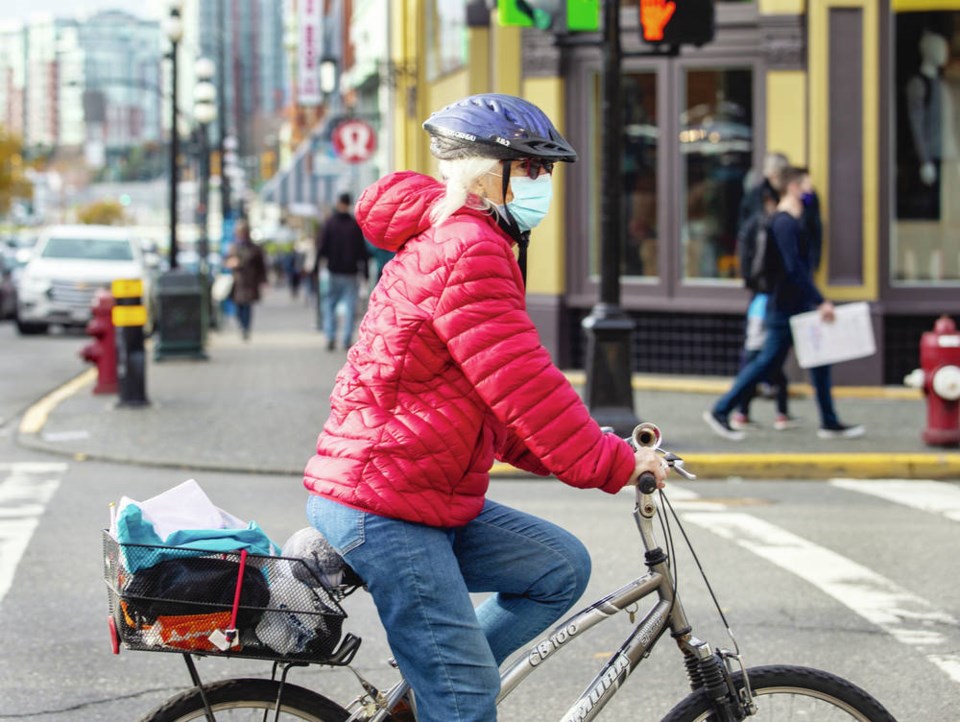It’s becoming clear that with these half-measures, we are flirting with, even daring, another wave of the pandemic to strike us in about 90 days.
Might we consider tougher moves in these three to four months of 2021 hell to get us more quickly to the other side?
Two days before year’s end, a distinguished group of medical practitioners, academics, business leaders and bureaucrats produced a report with their radical idea of a “Canadian Shield” to help us fight COVID-19 and even to fight the fight against COVID-19.
It argues that much more substantial restrictions over the next months — either now until the end of March, or in February through April — would rapidly lower the caseload, permit a better system of monitoring and testing, and generate a much earlier fully functioning economy before and not after we are thoroughly vaccinated.
While it will seem counterintuitive for anyone in business to talk about reducing economic activity amid a mild but encouraging recovery, the opening line of the report is pretty compelling: “Determined action over the next few weeks could save 5,000 lives, create 320,000 jobs and generate $37 billion of economic growth in 2021 compared to Canada’s present, failing COVID-mitigation strategy.”
The report by the COVID Strategic Choices Group goes on to suggest that quick action would reduce new cases by 75% by the end of this month and to fewer than 40 new daily cases — yes, 40 — nationally by May 1 and sustain that until the country is properly vaccinated.
The alternative, they say, is another serious wave of cases in March and April — with 9,000 cases daily, not 40 — before we are vaccinated in large numbers, bound to trigger another set of restrictions to set back our economy as we hit spring and summer.
That would stun certain of our industries, like tourism and hospitality, critically hard.
To be clear, this prescription would be arduous medicine, not another round of mild measures. This would be an imposition approaching but not quite as intense as the effective measures last year in Melbourne, the second-largest city in Australia — much like we had last April.
The report argues we need this course correction now to more effectively test, trace and isolate the pandemic. It is evident, particularly in the largest provinces, we haven’t got it together.
This seeming step backward is not the first instinct when it appears British Columbia has relatively few restrictions and a reasonably acceptable caseload. Indeed, the report from this non-partisan group feels like a letter from Eastern Canada (true) and from people outside business (not true). The group’s authors are principally from Ontario and Quebec, but it includes senior leaders within the Canadian Chamber of Commerce, Bell Canada and Scotiabank.
The report, relying on some economic modelling from Queen’s University that is being applied to Canada’s technology supercluster strategy, predicts what will happen in 2021 if we stay the course, if we adopt the Melbourne strategy, or if we take the middle path of the Canadian Shield approach.
It argues that many sectors of the economy now are readier to conduct business from home. Greater restrictions are generally an easier blow. They believe that with a new wave of strong economic supports in this short period, the payoff would be an easing on the health care system strain immediately and a much more vigorous reopening of the economy in a matter of months.
“Success will allow Canadians, within a few weeks, to take back collective control of their lives, their hospitals, their businesses and their communities.”
As a country we have a lack of uniformity in how we have approached the balance of restrictions and permissions. We have two strategies on the go: one in Atlantic Canada and the North that has been restrictive and successful, one in the rest of the country that has tried but largely failed to manage the pandemic and minimize the economic impact.
We can be smug that our strategy and our geographical separation have helped B.C., but if the economies of Ontario and Quebec cannot resume, the effects will not be lost on this province. The report makes a reasonable plea for a national reset, for a move from “mitigation” to “persistent suppression.”
The outline of its plan is a remove from where we are and involves tough love: no-nonsense curtailment of activities, no-expense-spared support for affected people and firms, no-holds-barred testing and tracing to smite the virus. It would, for instance, involve testing the thousands of truckers who traverse the border each day and would keep Canadians from travelling across the country.
Again, though, it’s all only temporary. The reward presumably comes.
The doubts I have are: In such a climate of impatience and fatigue with what has been sacrificed in the name of fighting the pandemic, would any of our leaders support this alternative this far into the mess? And, given that more than a dozen of those national and provincial politicians travelled abroad in recent weeks, have they lost credibility to collaborate on a new national strategy?
Kirk LaPointe is publisher and editor-in-chief of Business in Vancouver and vice-president, editorial, of Glacier Media.



